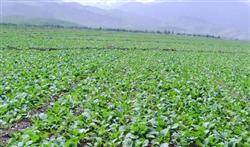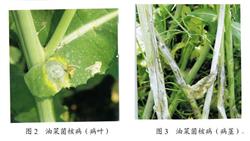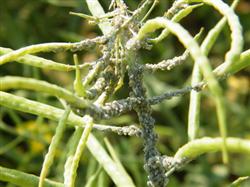There are taboos about growing rape.

Although the broad masses of farmers have a high enthusiasm for planting rape, some people have many, chaotic and miscellaneous varieties; others continue to plant crops, and rape can not grow and develop normally; in addition, there is the problem of white seed cropping or partial application of nitrogen fertilizer. These are taboos of rape. For this reason, we should pay attention to the following points: select high-quality rape varieties. That is, the ones with high oil yield, low erucic acid content and low glucosinolate content in vegetable cake are selected. The newly launched "double low" varieties are Zhongyouza 2, Zhongyouza 4, Zhongshuang 6, Zhongshuang 7, as well as Huaza, Ningza, Xiangza, Wanza, Youyan and other new varieties. All localities should select 1-2 leading varieties according to the local ecological environment and planting habits. Rotation should be carried out to change stubble to plant rape. Continuous stubble reduces the fertilizer supply capacity of the soil as a whole, resulting in a shortage of some elements and aggravating the disease, resulting in a 10-15% reduction in yield. Therefore, the field where rape stubble was planted last year must be planted by rotation when sowing in autumn. Re-apply base fertilizer and fertilize before the year. For high yield, rapeseed must catch autumn hair and winter strong, produce 100 kg of rapeseed, absorb 8.8-11.3 kg of pure nitrogen, 3.0-3.9 kg of phosphorus pentoxide, 8.5-10.1 kg of potassium oxide and 0.5 kg of boron. 70% should be applied when applying base fertilizer and topdressing before the year.
- Prev

Integrated control of Sclerotinia sclerotiorum in rape
Sclerotinia sclerotiorum is an important disease of rapeseed, which is widely distributed in China, especially in the Yangtze River basin and the south. It occurs 10% to 30% in general years, 80% seriously, and the loss is very serious. Sclerotinia sclerotiorum is caused by a fungus, which can occur in all stages of rape growth.
- Next

Rape aphid
The main aphids harming rapeseed are radish aphid (Lipaphiserysimi), peach aphid (Myzuspersicae) and cabbage aphid (Brevicoryne6rassicae). Radish aphid and peach aphid are common in all provinces (regions) of China. These three kinds of aphids often occur in rape with needle-like mouthparts.
Related
- The first cup of black tea in spring, the flavor and history of tea gardens in Kenya, Africa
- The computer can not only choose potatoes, but also grow tea rice. AI will grow winter oolong tea champion.
- It is not only the inflated tea bitten by insects, but also engraved with the four seasons tea in Beipu.
- The Oriental Beauty Tea Festival in Zhuxian County takes the stage at the weekend to experience the plus-size feast of oil tea.
- & quot; Oriental Beauty Tea & Exploration of Emei in Hsinchu, the hometown of quot;
- The new variety of strawberry "Tainong 1" dessert is the first choice with mellow aroma. Crimson gorgeous
- History of Tea in Taiwan: from Wild Inner Mountain to Export Tea Garden
- Two types of Taiwan Oriental Beauty Black Tea won the British three-Star Award for Childhood Tea Xiang Zhang Jiaqi changed from pilot to champion tea maker.
- Banana species and varieties: the planting history of Taiwan Xianren banana and dwarf banana is long, is banana disease resistant?
- Coffee planting Technology: Qianjie Coffee from Seedling to harvesting

